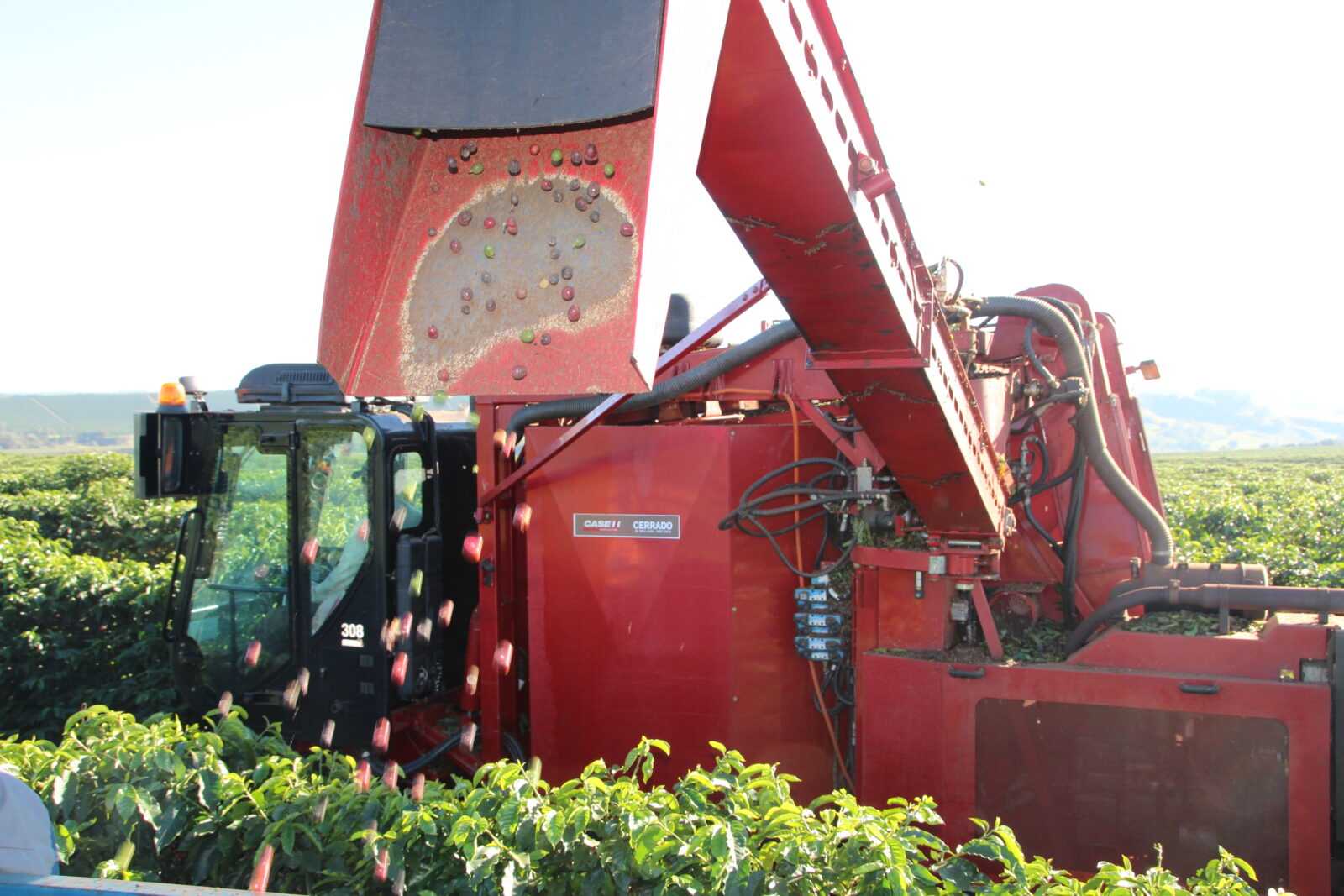BOGOTÁ, Colombia – Stepped terraces for coffee grown in sloped terrain facilitate mechanical harvesting, noted Brazilian expert Fabio Moreira, from Universidad Federal de Lavras, on the second day of the academic agenda of Cafés de Colombia Expo 2017.
Although the diesel engine, invented 125 years ago, was a milestone for increasing productivity in the field, the increase in global population and rising demand for food is putting farmers under increasing pressure to rise production, he noted.
Moreira’s presentation comes at a time when the Colombian Coffee Growers Federation (FNC) is exploring ways to increase the efficiency of selective harvesting. The Brazilian expert acknowledged that, due to erosion, Colombia’s volcanic soils could present a challenge for building terraces.
He also explained that mechanical shakers can be calibrated in terms of vibration, speed, rod distribution, and impact in order to obtain more ripe beans than green ones.
Fermentation Impacts Bean Quality
In the presentation “Fermentation and Coffee Quality,” Gloria Puerta, from the National Coffee Research Center (Cenicafé), explained how the multiple variables that come into play in the fermentation stage impact quality.
Variables such as fermentation system (open, closed, submerged or dry), mix of beans collected at different moments, ambient temperature, water quality, hygiene, incomplete mucilage removal, and fermentation time irreversibly influence final quality attributes including flavor, acidity and notes.
The Importance of Good Agronomic Practices
Donizeti Alves, Brazilian scholar from the Federal University of Lavras, noted that the physiology of coffee plants reacts to different environmental changes and directly affects productivity. This is why, he suggests, good agronomic practices are crucial.
Good agronomic practices include good nutrition; pest, disease, and weed control; pruning; and selection of variety type. They equip the plant’s physiology for the defense against adverse environmental changes such as droughts.
Alves explained that coffee trees have a technical or theoretical productivity (practically unattainable), a potential productivity, an attainable productivity and, lastly, a real productivity. The tree’s shade architecture (close large leaves and vertical branches) obstructs the penetration of sunlight.
He also analyzed the potential yields of a coffee tree based on the maximum concentration of cherries in each cluster, and explained which chemical substances come into play in plant reactions, such as defoliation, in response to environmental stimuli such as water stress.
FNC Bets on Durable Resistance
In the presentation “Improved Coffee Varieties for Colombia,” Claudia Flórez, from Cenicafé, explained that the FNC’s breeding strategy has worked to find coffee varieties that have a durable resistance to coffee leaf rust. “The FNC’s genetic strategy has proven to work. It has differentiated our varieties from the ones developed in other countries.”
Flórez noted that varieties such as the recently released Cenicafé 1 are the result of a 25-year-long effort to provide coffee growers with varieties that enjoy four fundamental features: high productivity, excellent quality, optimal bean size, and durable resistance to diseases such as rust.
















